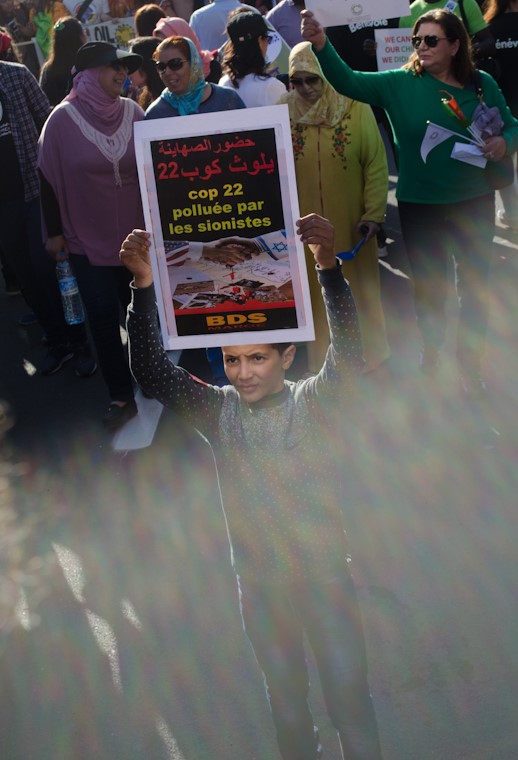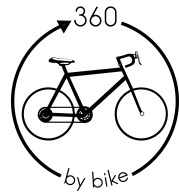Some brief thoughts on how politicians take advantage of our frustrations and defer leadership on complex and challenging issues–I’ll get some reflections out by the end of the week on Morocco and my time at COP22.

Some of the biggest commitments to action at this year’s UN climate negotiations came from developing countries, but the interests of the wealthy and powerful, their choice topics and their rhetoric, held center stage. I find this child’s message hateful and misguided, but his frustration is certainly real and legitimate, as is that of the many civil society groups that came to the Marrakech climate march to protest the Moroccan government’s marginalization of non-Arab, non-wealthy, and dissenting voices.
I can’t get this kid out of my mind, and I think part of it is how familiar it all feels. Back home in the US, people of every race and creed are angry–angry because their interests have been put aside, solutions to their everyday problems put off for four-plus decades, while the richest among us enrich themselves.
In their despair, liberals look down on Trump voters, thinking them too ignorant to know when they’ve been duped. But while Trump is singular in the extent to which he has brought violent and discriminatory rhetoric to our national stage, he is far from alone in leveraging identity politics to gain power. Progressives lined up to defend of Hillary Clinton’s “basket of deplorables” comment, ignoring the fact that it represented exactly the kind of facile essentialization of people that perpetuates prejudice.
Rhetoric like this represents an easy way to drum up support from a political base, but also to avoid difficult conversations about structural inequality and system change. Democrats’ identity politics may be a step less harmful in that they don’t promote racism, but they tread the same poisonous path: they pit citizen against citizen and put more value on votes than humanity. They direct frustration into hatred and relieve us of the responsibility of our most difficult and complex problems.
With the extremes of identity politics risen in Britain and the US and rising across Europe and the Muslim world, we are left with the task of seeing beyond our difference and addressing our too-real problems. I tell you, for every person I’ve met–nation, class, faith regardless–who chooses people for their enemies, there are ten who choose to see a common enemy in our broken world order, and allies in those who share their discomfort with the status quo.

Thank you, Forrest, for your clear view, cultivated from the saddle of a bicycle over the many miles. I look forward to reading more of your reflections and observations
LikeLike